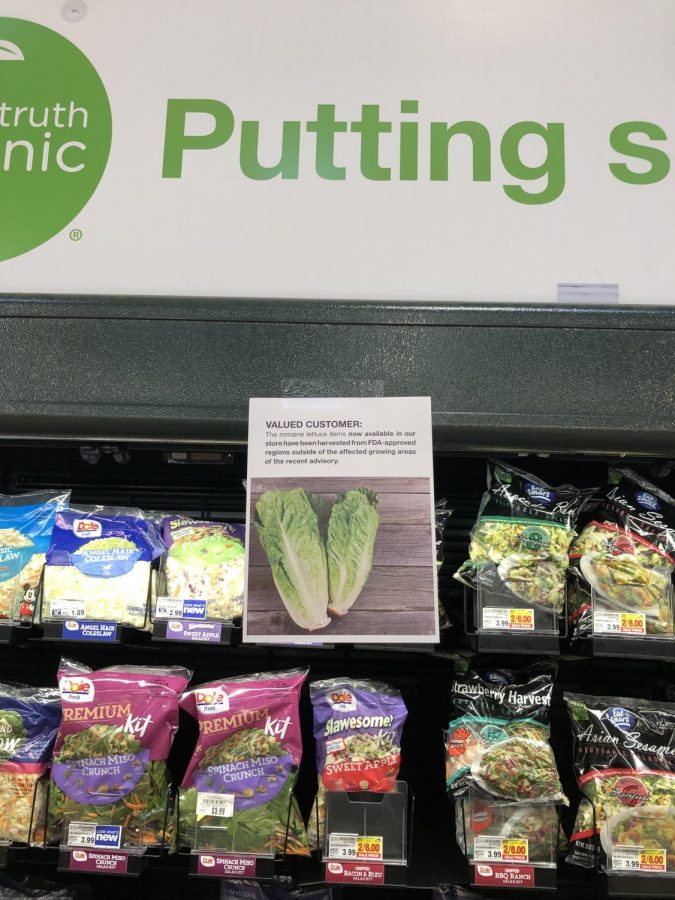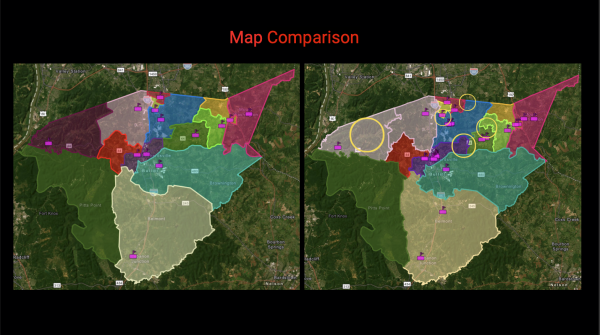A Recent Lettuce Outbreak Sickens Many
Kroger posts an advisory about the romaine lettuce outbreak.
Lett-uce find a solution to this outbreak.
A recent lettuce outbreak has sickened many across the country.
Over the past few weeks, romaine lettuce has been the cause of an E. coli outbreak. Several restaurants, stores and people are being affected by this. The outbreak is under investigation in order to get to the root of the problem.
Last week, the Centers for Disease Control and Prevention cautioned people not to eat romaine lettuce. This comes as a result from a recent E. Coli outbreak in the lettuce. E coli is a bacteria that’s mostly harmless. However, some strains can cause severe food poisoning. At this point, the E. coli outbreak has sickened more than forty people.
The popular fast food chain, Chick-Fil-a, had to make adjustments as a result of the outbreak. “It affected my job because we have popular sandwiches as well as wraps and salads that contain lettuce. However, we were able to use other kinds of lettuce to continue sells. This resulted in happy customers and a continuation in sales,” said Chick-Fil-a worker, Trinity Webb.
Local restaurants have been affected by the recent outbreak as well. “The outbreak affected Aspen Creek by management having to dismiss any salad orders that used romaine lettuce. We had a note on our entrance door to inform the customers before they came and ate. For any salads that used romaine lettuce, we either had to use iceberg lettuce instead or ask if there was something else they desired,” said Nathan Thomas.
Many people have been affected by the outbreak. “I do think that this outbreak is affecting many people because some families all they eat is salads. I’ve had several calls when I was working asking if they can get salads and I, unfortunately, have to tell them no and they would hang up due to the inconvenience,” said Aspen Creek restaurant employee, Nathan Thomas.
The outbreak has been linked to northern and central California. The FDA is now working to develop a system to better identify the tainted lettuce. The system includes improving packaging information. The FDA is suggesting that the label includes where the lettuce is produced as well as when it was harvested.
The romaine lettuce grown outside of the targeted area is not affected by the outbreak. However, the advisory against romaine lettuce remains because the bad and good batches cannot be clearly identified. Moving forward, hopefully, packages of romaine lettuce will have the new labels that will help prevent future outbreaks.






